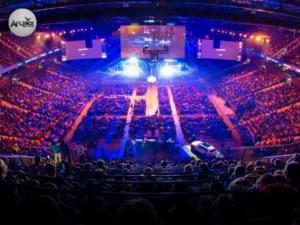
Esports has transformed from casual gaming to a global phenomenon, driven by a range of game genres that captivate millions of players and spectators. Below, we explore the most popular esports genres today—what makes them compelling and how they define the competitive landscape.
1. MOBA (Multiplayer Online Battle Arena)
At the pinnacle of esports popularity stands the MOBA genre. Games like League of Legends and Dota 2 dominate with their intricate blend of strategy, teamwork, and dynamic gameplay. In these titans of the scene, two teams of five battle across a symmetrical map, each aiming to destroy the opponent’s base while managing resources and hero abilities. The result? Thrilling strategic depth and captivating storytelling in every match.
These titles attract huge viewership—League of Legends has amassed audiences that overshadow traditional sports, while Dota 2’s The International boasts record-breaking prize pools, fueled in part by community contributions.
2. FPS (First-Person Shooters)
Esports and FPS titles have long gone hand-in-hand. Games like Counter-Strike: Global Offensive (CS:GO), Valorant, and Overwatch showcase high-stakes gameplay where reflexes, precision, and tactical coordination reign supreme.
CS:GO, for instance, is a legacy esport with prestigious “Majors” and a global pro circuit dating back decades. The newer hero shooter subgenre, typified by Valorant, blends FPS mechanics with unique character abilities to create a fresh and rapidly growing competitive experience.
3. Battle Royale
The battle royale genre shook up esports with its mass-participation, survival-of-the-fittest format. Fortnite, PUBG, Apex Legends, and similar titles throw dozens of players into a shrinking arena, where only the last team or individual prevails.
This format’s unpredictability and drama make it a fan favorite. Epic prize pools and rapid action have pushed these games into the esports spotlight, especially on streaming platforms.
4. RTS (Real-Time Strategy)
RTS games like StarCraft II, Warcraft III, and Age of Empires were cornerstones of early esports and remain beloved for their cerebral complexity. Players manage resources, direct armies, and out-think opponents with blistering decision-making—all in real time.
While their prominence has dipped in recent years, RTS titles still command fierce competitive scenes, particularly in markets with deep esports roots like South Korea.
5. Fighting Games
Long before esports went mainstream, fighting games were laying the groundwork with tournaments like EVO. Titles such as Street Fighter, Tekken, Mortal Kombat, and Super Smash Bros. remain staples. Players go head-to-head in intense, skill-based battles, with victory hinging on precision execution and mental composure.
6. Sports Simulation & Racing Games
Blurring the line between virtual and traditional sport, sports simulation games—like FIFA, NBA 2K, and Madden NFL—rally fans of real-world sports into the digital realm. Meanwhile, racing esports such as Gran Turismo, iRacing, and F1 provide immersive, fast-paced competition that’s increasingly recognized by official sporting bodies like the FIA.
Rocket League, an inventive twist on both genres, melds soccer with rocket-powered cars—and has become a standout hit in esports circuits.
7. Card & Auto-Battler Games
A more recent esports niche includes Collectible Card Games (CCGs) like Hearthstone, Legends of Runeterra, and Magic: The Gathering Arena. These games focus on strategy, resource management, and deckbuilding skills—offering a lower-action but highly cerebral competitive experience.
Close relatives, auto-battlers like Teamfight Tactics and Dota Underlords require strategic placement and meta awareness, carving out their own tournament communities.
Conclusion
Esports thrives on diversity. From the strategic depth of MOBAs and RTS games to the precision of FPS and fighting titles, each genre offers a unique competitive flavor. Sports sims and racing bring realism and familiarity, while card-based and auto-battler genres add fresh strategic dynamics. This breadth of gameplay ensures esports remains dynamic, inclusive, and endlessly fascinating.
Let me know if you’d like to zoom in on a specific genre, explore its major tournaments, or uncover what makes a game successful on the competitive stage!








